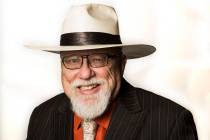Doctors should care like Mom did
This will be the first Mother's Day without my first health care provider. Alzheimer's took her out in January.
As most of us have found with our mothers, the patient-provider relationship was always excellent: Even when working outside the home, she found a way to give her patients, or rather her children, the attention they deserved.
The medical care given by our mothers should make it difficult to accept the cold substitute too many members of the medical establishment serve up today, where arrogant providers make the case that the less time they spend with customers, the better their bottom lines will be.
Mothers, bless their hearts, talk about medical situations with their patients/children, and they comfort them, and they share with them how long the sickness might last.
And you're told you won't have to go it alone no matter how tough things become.
In other words, mothers act the way doctors are supposed to act, with compassion and respect.
Impossible, you say, for doctors to act like mothers. Why? No one's asking them for the hugs and kisses and tears and unconditional love that mothers also deliver. Just the compassion and respect that's supposed to be the hallmark of the doctor-patient relationship.
Study after study finds many Americans don't think they receive the respect they should from doctors.
They're tired of waiting seemingly forever in waiting rooms as though their time means nothing. They're tired of racing through appointments where the greeting is the longest part of the visit. They're tired of doctors saying, in effect, "just take my word for it," when you ask, say, why physical therapy shouldn't be tried before expensive, dangerous surgery.
To help ensure that her grandchildren received the medical care they deserved, my mother often reminded me on Mother's Day - she relished going down memory lane about crises that had happy endings - that it sometimes is necessary to point out to doctors who they work for.
There is one story from my Michigan childhood that makes her case. I was 4 years old. I had a high fever accompanied by crossed eyes. Mother's caring and over-the-counter medications weren't enough.
Not long after Dad drove us to the pediatrician's office, we met with the doctor.
We hadn't been there long when the doctor said my problem was probably polio. Then the phone rang. The doctor - who was often featured in the newspaper's society pages - answered, and he started laughing.
He was joking with someone about his bridge game.
"Why are you talking about playing cards now?" my mother interrupted.
"I'll be just a minute," the doctor said, motioning for her to quiet down.
"Did you hear my wife?" my dad said, moving forward and clenching his fists. "Get off the damn phone."
The doctor hung up. My mother got between my father and the doctor and demanded a referral to another physician, which the doctor quickly gave.
"You should be ashamed," my mother scolded. "We're worried sick."
As it turned out, I had another virus. A patch over one eye for a while and corrective lenses and my eyes turned out OK.
Still, the visit to the doctor that became so ugly changed my life for the better. I learned to fire doctors who don't care about me or my family. Doing so probably saved the life of one of my children.
On this Mother's Day, remember your first health care provider, how she treated you.
If we all insist that we receive from doctors the compassion and respect for life that our mothers showed us, we'll get it.
Paul Harasim is the medical reporter for the Las Vegas Review-Journal. His column appears Mondays. Harasim can be reached at pharasim@reviewjournal.com or 702-387-2908.

















